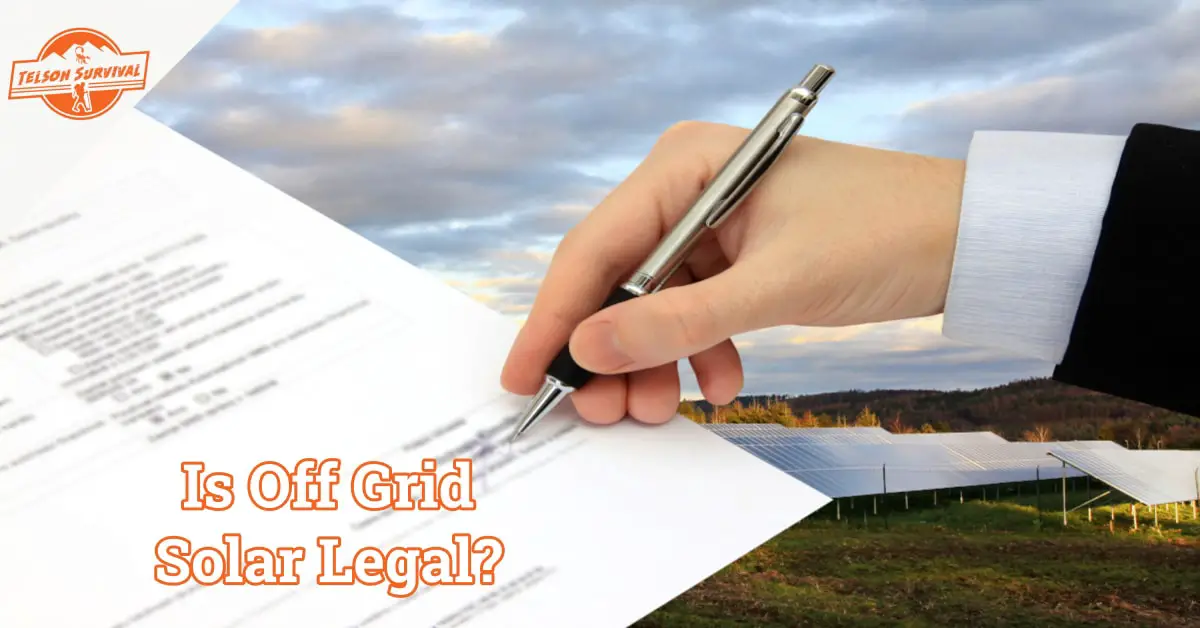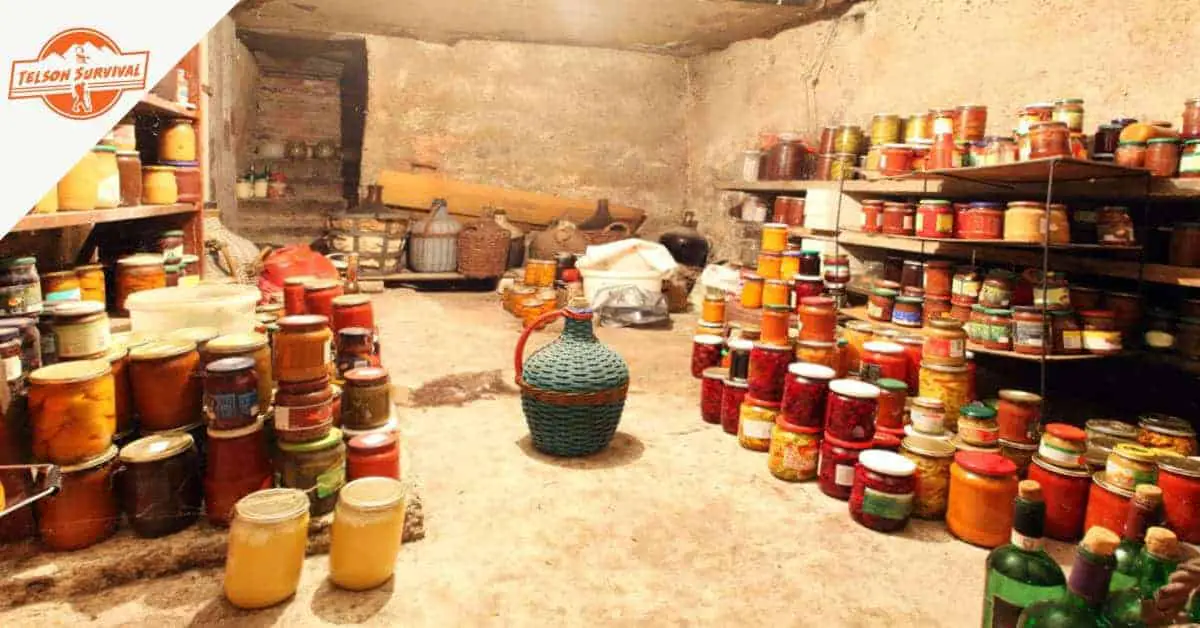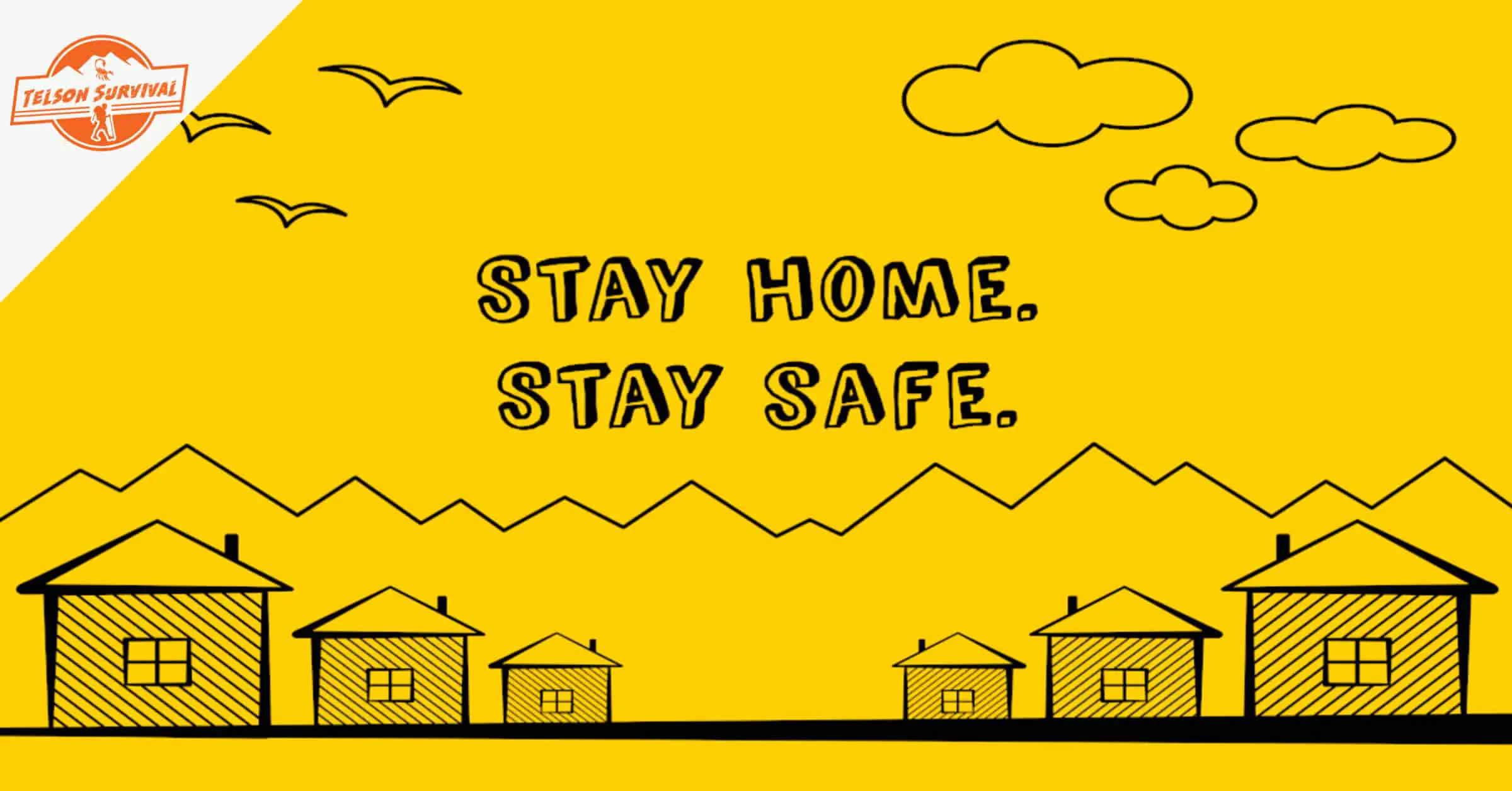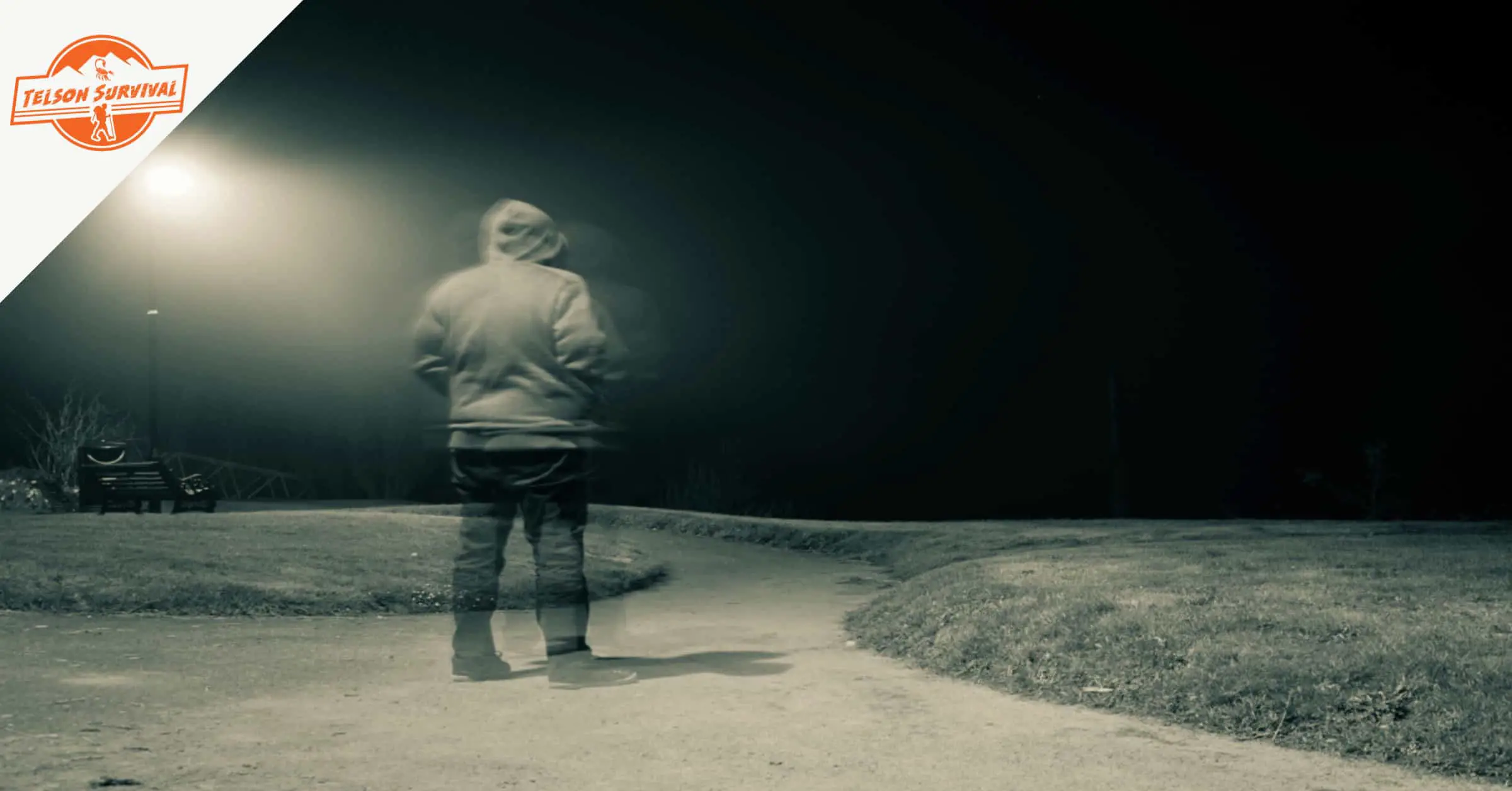As the march towards total planetary sustainability continues, and fears of endless grid blackouts grow, many people have sought to learn more about harnessing power by themselves. It’s time, preppers, to discuss the legality of off-the-grid solar installations.
As a part-prepper, part-conspiracy theorist, I understand that this burgeoning community is ahead of the curve when it comes to anticipating humanity’s future needs.
However, is the law on the same page? The following article touches base on a few legal guidelines around setting up your off-grid power solution. We have also addressed some common reader questions for your benefit.
Off-grid solar is generally legal in the United States, and expert legal minds have even suggested that this legality is a reflection of a citizen’s constitutional rights.
All solar installations, however, must be consistent with any state, city, or town regulations. Such installations must also not infringe the guidelines of the National Electric Code.
Does it matter if off-grid solar is legal if SHTF?
If SHTF hard enough…will anything matter? That’s the real question, in my opinion. What chance would legality stand in the face of a post-apocalyptic dystopia?
I guess that would depend on how the SHTF. If we're talking zombie hoards, I doubt permits and guidelines would be high priorities. If we're talking about a Hunger Games form of iron-fist totalitarianism, then there might be cause for concern.
Now, at the time of writing, off grid solar power is legal in the United States, with a few minor exemptions at the state and local level.
If generating your own power is authorized in "good" times such as these, then it is difficult to see how a blackout-inducing catastrophe would change that state of affairs.
In such a scenario, the traditional powerhouse (no pun) electric companies would probably be glad to see solar's impact on easing burdens on the grids. Of course, if S truly HTF, there might not be any power companies left!
So, no, the legality of solar would not matter in a full-on disaster. Government COULD impose some sort of new legislation to make it so, but it’s difficult to see how (or why) they would without veering off the conspiracy theory cliff.
Off-grid solar: general legal requirements and regulations
“Off-grid” is a term that is often at risk of being misused. Truth be told, very few people are entirely free of the utility companies because the cost of completely (and sustainably) powering your life with solar is quite high. As a result, we have full-on and partially off-grid setups, and each may be treated differently by the law.
The National Electric Code (NEC) is the main regulatory instrument that guides the installation of electrical equipment and wiring. While it is not a law itself, it does serve as a tool that guides power-related legislation at the state and municipality level.
If your cottage or homestead is completely off-grid, you have little to worry about as far as regulatory hoops. Off-grid solar power systems make use of low voltage direct current, which the NEC is extremely lenient on. As long as you make use of wiring that can be classified as “temporary”, and do not connect to the main grid, you’ll be fine.
If you are partially off-grid, the NEC may have a bit more room to cramp your bug out style, depending on your state or municipality. Minimum usage charges are potentially on the horizon too, as the mega power corporations seek to get a slice of the solar pie.
Homeowners and survivalists in this position may find themselves paying over-the-top utility bills despite producing most of the electricity they use.
Some homeowner's associations have also begun putting by-laws and land use covenants in place to regulate solar installations.
Title deeds (especially in country land sales) are now being amended to include a variety of stipulated land uses, and it is very possible to impose stipulations over solar installations.
Local government also has a special power at its disposal…municipal noise ordinances. In this context, “noise” is not just limited to sonic disturbances, but can include other impediments to the senses.
Beauty ordinances are an extension of this, and city councils can prohibit the installation of features that may affect the aesthetic beauty of a residential area or landscape. While rare (and contestable in court), your solar equipment could be classified as such an impediment.
Do you need a permit to install off-grid solar?
Generating off-grid electricity is perfectly legal and, under some circumstances, does not require a permit. Of course, this depends on your state or whether your homestead is in a rural or urban area.
Because urban areas tend to have stricter zoning and land use regulation, you are more likely to need a permit before setting up. The opposite is true for country land, where there is more wiggle room.
Of course, every situation is unique, so it is a good idea for you to visit your local authorities and find out more about the permits.
Is it illegal to install your own solar panels?
This also depends on the state or municipal zone you plan to bug out in. Some building authorities are extremely strict about solar installations, which would make it illegal for you to install your own solar panels (unless you are a licensed solar installer, of course).
Other areas of the country are much more lenient on this, but you will still need an electrician for the final wiring. DIY panel installation has been recognized as a way to help trim the (potentially) steep costs of a solar setup.
Again, you will first have to seek your local authorities, homeowner’s association, and any professional solar installation crews for a full understanding of your local laws.
Is off-grid solar legal in California?
Absolutely. California law does not hinder those who wish to turn their backs on the grid. In fact, the state encourages the adoption of solar energy in any way possible and, as of January 2020, new homes are now required to run on solar power.
As one of the country’s pioneers in the green movement, California has been a major supporter of all things solar for some time now.
There have been grumblings by those still on the grid that the drastic switches to solar make the utility power more expensive. However, that argument is likely to keep falling on deaf ears.
Is off-grid solar legal in Florida?
If there were some sort of irony competition, I do not doubt that Florida's "Sunshine State" moniker would claim a podium finish. This is because the state does NOT allow the setup of grid-free solar installations. Yes, you read that correctly.
At present, the state mandates all solar-powered homes to remain hooked up to the grid to serve the Net Metering program. In a nutshell, this means that power companies can charge you for any power you take from the grid while reimbursing you for any excess power your solar setup adds to the grid.
The state participates in upholding the International Property Maintenance Code. This code dictates minimum building requirements such as lighting. Solar batteries and power plants are not yet fully reliable so, for the time being, the state continues to compel homeowners to keep the option of grid power.
Is off-grid solar legal in Texas?
The great state of Texas is home to many off-the-grid enthusiasts (ahem, Alex Jones), and is a natural port of call for this topic.
The vastness of the state’s country land and deserts means that, in some areas, there is no grid to be on! For places like these, off-grid solar is the only option available if you are to have any power at all.
In the big cities like Austin and San Antonio, you will have to dance to the tune of local authorities, zoning laws, and permits. With the presence of reimbursement and rebate incentives, you may find it cheaper to go partially off-grid. Most people choose this option as an opportunity to earn a little payday by feeding the grid.
We preppers are not “most people” though, are we? Once all of your zoning and permit issues are out of the way, the state won’t stand in your way if you wish to go off the grid completely.
Legal Off Grid Solar Power FAQs
Is it legal to install your own solar panels in California?
State building codes and the California Solar Rights Act do not necessarily specify WHO is allowed to carry out your solar panel installation.
The main thing the state requires is that you obtain a permit before you start layering photovoltaic panels all over your homestead. Of course, you will need an electrician for the intricate wiring.
Once this is completed, an inspection will be conducted. If you pass, you should avoid bragging about setting it up yourself.
Can I install my own solar panels in Florida?
Indeed, you can. However, please note you are only allowed to INSTALL THE PANELS, not hook up the wiring. You are certainly not allowed to connect the system to the grid by yourself either. All wiring must be done by a professional electrician.
Do I need a permit to install solar panels in Texas?
Yes, especially in urban areas. The city of Lewisville, for example, requires a permit before a house is equipped with panels. An inspection before and after installation is also required.
If you plan on bugging out in the state’s more remote locales, you are less likely to need permission to start setting up.
Off Grid Solar Legality Conclusions
Going-off grid, in any aspect, is tough. Off-grid solar certainly amps (no pun) that up even further, but it is doable. Before diving headfirst into the survivalist dream, take some time to assess your local legislation and by-laws, so you can understand the scope, benefits, and drawbacks.










